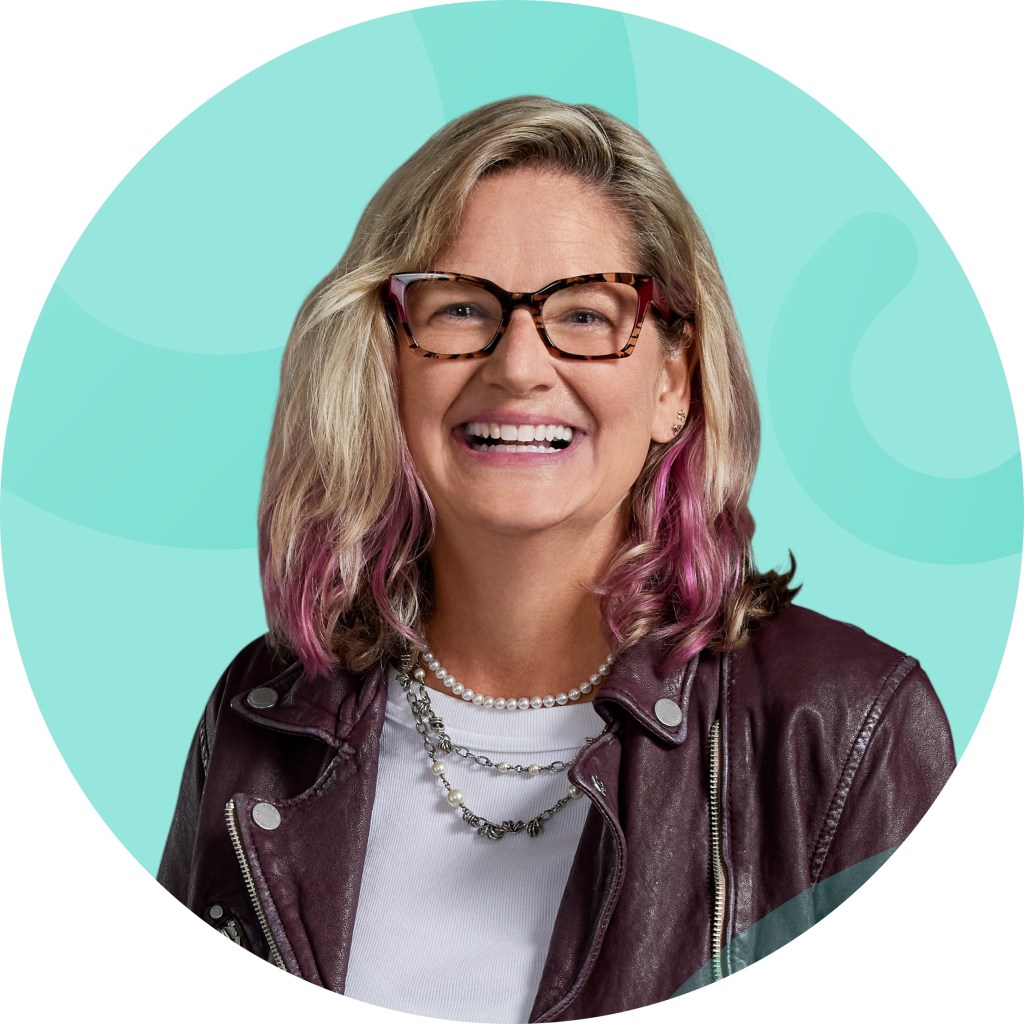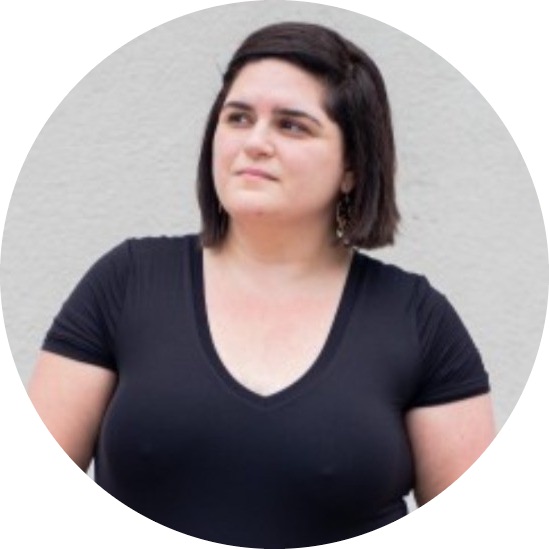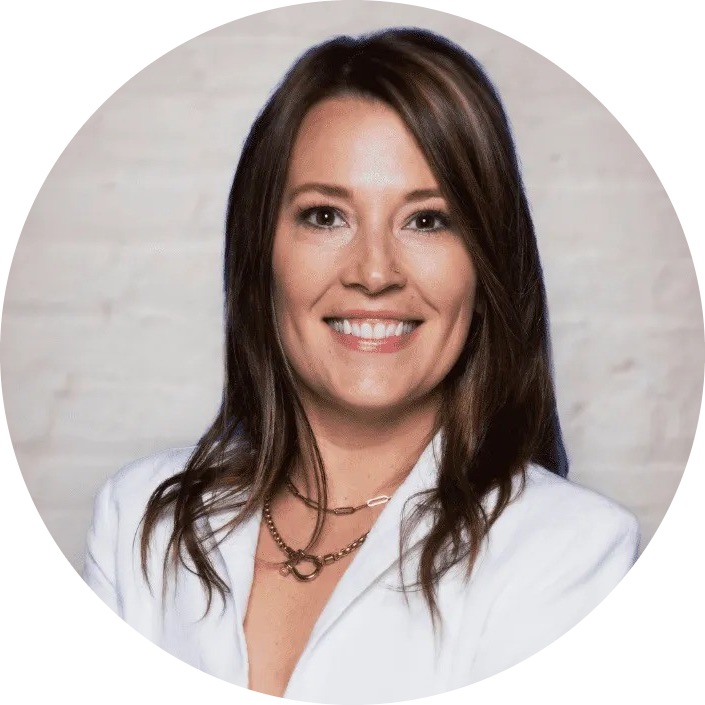Breaking barriers: how neurodivergent leaders play to their strengths

This article is part of a series that will spotlight the biggest challenges and opportunities for desk-based professionals who are neurodiverse. More from the series →
The idea that those in corporate leadership roles should fit into a similar mold has been challenged recently with diversity, equity and inclusion initiatives. That includes diversity of thought, with more executives proudly sharing they are neurodivergent and revealing how their condition has influenced their experience in the working world.
While climbing the ladder can be particularly tricky for neurodivergent professionals, some have effectively harnessed their unique strengths to succeed and today use their experience to better lead their organizations, they say. We spoke to a range of neurodivergent professionals as part of this series and included some of their stories here.
Pat Wadors, chief people officer at workforce management firm UKG
Wadors has dyslexia, a condition that impacts the way she processes written information, but wasn’t diagnosed until her freshman year of college. Growing up she was typically a C or D student. “I struggled really hard, and when you’re undiagnosed, you get a lot of labels around that, so you figure out your way to pass the class, to get that extra credit, whatever you need to do,” she said.
But her diagnosis helped her make better sense of why she seemed to be processing information differently than others. “I’ll get to the correct answer, I just approach it differently,” she said.
She graduated college in 1987 and landed her first job in HR. In that role and a handful of others following, she was advised by mentors to not disclose her condition – that it would harm her ability to get hired and stay employed. “The first decade was like, just hide it,” she said. But not disclosing it made her feel uneasy and inauthentic. She also realized, “you know, you really can’t hide it, I mean that’s the fallacy, it comes out in so many different ways,” she said.
For instance, when asked to take notes on a whiteboard in front of others during a meeting, “I’m nervous, my spelling sucks, I keep transposing my letters, and crossing things out.” Eventually, she told colleagues she was dyslexic, and in certain cases needed them to slow down or give her more time to process things. “It just came out, naturally,” she added.
That was a turning point, and from there she was able to better capitalize on her unique strengths and different way of thinking to help her succeed professionally. “I can see things going in a direction faster than most people, I can anticipate alternative pathways, I’m more creative in my thinking because I’m not restricted by a sequence,” she said. “I’m a much better leader because of my dyslexia,” she said.
Wadors also describes herself as an introvert, or someone who is more reserved and introspective. That’s another important attribute she’s learned to navigate and thinks it makes her a better leader. “Leaders who are introverted have learned to navigate their gas, their energy. So it doesn’t mean we’re shy, it doesn’t mean we’re afraid to be in front of people, it just exhausts us.”
“I think extraordinary leaders know how to listen, and they know how to use their energy, and I think introverts are no longer seen as weak,” she said.
For those early in their career navigating the challenges of being neurodivergent, Wadors said the biggest part for her was “learning what you need, and how you work differently, and how to ask for accommodations.” But ultimately, she’s learned, “being authentically you just builds trust.”
Olivia Dreizen Howell, CEO and founder of Fresh Starts Registry
Dreizen Howell founded her company Fresh Starts Registry three years ago — a platform that works like a wedding registry, but is for people going through divorce, loss, or other major life events. That was also around the time she was diagnosed with attention-deficit/hyperactivity disorder – referred to as ADHD – a condition that impacts her ability to focus.
“Prior to getting diagnosed, my head on a constant basis was like having four Broadway musicals going and like three sitcom jingles, and constant ideas,” Dreizen Howell said.
Her ADHD didn’t impact her professionally much early in her career as a middle school teacher, and she was able to think of different ways to teach lessons that catered to all kinds of student’s learning styles. After the birth of her son, she left teaching to start a marketing company, and really started to realize just how differently she processed information herself.
She struggled with traditional systems and processes but found ways to create new ones that made more sense to her. “Because I have always kind of marched to the beat of my own drum. I’ve just learned to do things in the way that works for me.”
She also realized her unique strengths, like how her constant ideas and lofty ambitions could actually come to be. She has a “dreamer-like” mentality she says, and that coupled with her unique ability to see problems and solve them differently than others helped propel her to professional success.
“So much of my ADHD is just thinking, well, why not? why not try it? I’m just going to go for it,” she said.
Howell never had a corporate job but said those environments can be particularly challenging for those with ADHD, who often deal with constant distractions and other sensory issues prohibiting them from doing their best work. But she advises those with ADHD in the workforce to not feel ashamed of it and instead learn to navigate it.
She advises talking with a therapist or ADHD specialist to build out systems that work better for you, “and remembering there’s no rules to any of this you just have to figure out how you process and how you retain information, and it may look funny to other people, but, if it works for you, then that’s totally valid,” she said.
She also suggests finding a way to manage burnout. “My brain, because of my ADHD, pings at a million miles an hour. So I can be doing 100 things at once. The problem though, is I burn out really quickly. So I’m just now in my life, learning how to balance all of that,” she said.
She believes those with ADHD are the most creative, insightful and intuitive she’s met, and figuring out what works for them is essential to propel them to meet their own goals. “People who want to change the world, all have ADHD,” she said.
Sarah Danzl, chief marketing officer at Skillable
Danzi was diagnosed with ADHD when she was 5 years old after her teachers thought she was fidgety and easily distracted. She’s now the chief marketing officer at Skillable, a virtual skill development platform, and says while navigating her condition was a bit of a challenge early in her career, today it’s what makes her a great leader.
“I’m very blessed that my mom and dad helped me figure it out and made sure that I was stimulated and had hobbies and that I felt really supported, and as I got bigger, I wanted to offer that same support to other people,” Danzi said.
ADHD is her superpower, she says, because it allows her to think several steps ahead and foresee a range of possible outcomes that others can’t. Learning how she works best and what processes she needs to implement for herself throughout her career has helped her get where she is today, she said.
“I am either wildly productive or not productive at all because my brain is just trying to do too many things at once,” she said.
Some practices she’s incorporated into her own working style include setting a 90-minute timer “so that I remember to get up, I remember to eat,” if she’s hyper-focused on something, she said. She also eliminates distractions by turning her phone notifications off. “I don’t do well when I’m getting pinged in the middle of a thought because my brain automatically goes to the ping and I lose focus.
“That can be very frustrating for people trying to get in touch with me, but I try to set blocks where I’m only doing deep work, or I’m only responding to emails, so that when I am present, I am really present.”
Learning how to eliminate distractions and be more present has influenced her leadership style, she said, and her ADHD itself has made her a more empathetic leader.
One practice she’s incorporated as a leader is to really focus on different working styles and how to best accommodate everyone with different preferences. When she started as CMO at Skillable, she asked her direct reports a list of questions about themselves and the ways they work best, to create what she calls her “user manual.”
Some of those questions include: How do you like to receive feedback? When do you work best? What’s your preferred communication style? What are some signs you’re stressed? If you’re having a bad day, what can I do to better support you?
She was surprised when staff told her they’d never been asked those questions by a boss before. She encourages her managers to do the same with their teams as well. People with ADHD may feel ashamed to disclose that to their employer, so it’s a tool to eliminate that need and more inclusively and directly ask staff what they individually need to do their best jobs.


